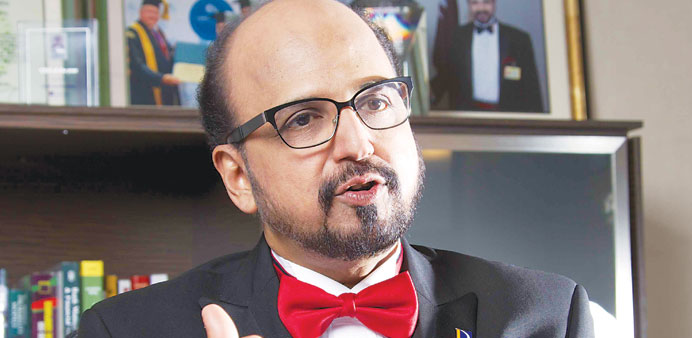By Santhosh V Perumal/Business Reporter
India has “evaded the risk” of being downgraded by global credit rating agencies because of the “prudent and pragmatic” federal budget, presented on Thursday, even as “worry” remains on high current account deficit due to excessive dependence on oil imports, according to Doha Bank CEO R Seetharaman.
“The imminent risk of India being downgraded seems to be evaded after (India’s) finance minister presenting a prudent and pragmatic budget,” he said in his initial reactions to India federal budget for 2013-14, which was tabled in Parliament.
Terming it as “responsible and balanced”, he said the budget has delivered both on the fiscal and capital markets perspective.
The fiscal consolidation on the budget front is achieved through a combination of higher tax revenues and increased divestment planning; the total divestment planned is Rs400bn during the year.
Although the finance minister (P Chidambaram) has, presented a “prudent” budget, Seetharaman said the question is whether the numbers are achievable. “In our view, the growing size of the government is worrying,” he added.
Finding higher taxes are intended to redistribute income from the rich to the poor through the government’s social sector schemes, likely with an eye on elections, he said fiscal consolidation ought to be attained through a combination of higher taxes and lower spending, but the budget uses only the higher revenue route.
Gross tax revenues are budgeted to grow 19.1% year-on-year in fiscal year (FY) 14 (from 16.7% in FY13), which could “disappoint in the current weak growth environment”, he said, adding the delayed payment on FY13 subsidies will mean the subsidy burden carries into FY14.
From a capital market perspective, reduction in equity futures securities transaction tax is a positive, whereas on commodities, the finance minister has levied commodities transaction tax, according to Seetharaman.
“The Sebi (Securities and Exchange Board of India) Act is to be eased for attracting more FII (foreign institutional investment), sub-account holders and foreign portfolio investors in the Indian equity markets,” he added.
On the budget proposal to enhance the limit for infrastructure companies to issue tax free bonds, he said it is a positive move to raise funds at lower rates for the long-gestation projects.
However, Seetharaman said “the greater cause of worry” remains on the current account deficit mainly on “excessive dependence” on oil imports, the high volume of coal imports, gold imports and a slowdown in exports.
Chidambaram had mentioned the current account deficit financing needs of $75bn over a period of two years through foreign direct investment, FIIs or external commercial borrowings.
Regarding the allocation of Rs140bn for capitalising the public sector banks for complying with Basel III norms, Seetharaman said this was expected “but interest rate subvention is continued so it is negative for the banks, given the stressed asset quality of the public sector banking sector.”

Seetharaman: India has evaded the risk of rating cut.
